Search Results
Showing results 221 to 240 of 621
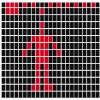
Is Anybody Out There?
Source Institutions
Learners listen to and try to decipher a radio message that was sent from Earth to possible intelligent civilizations.
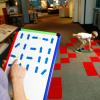
Exploring the Solar System: Mars Rovers
Source Institutions
In "Exploring the Solar System: Mars Rovers," participants learn about how scientists and engineers use robotic rovers and other vehicles to explore distant worlds, and experience some of the challeng

How to View a Solar Eclipse
Source Institutions
This is an activity to do when there is a solar eclipse!
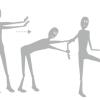
Pathways with Friends
Source Institutions
Directed by instructional cards, learners kinesthetically model cell communication by acting as components in a cell signaling pathway.

Your Energy Needs
Source Institutions
In this activity about the relationship between food and energy (page 8 of PDF), learners estimate average daily baseline energy (Calorie) needs and energy needs for different levels of activity.
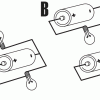
Fork in the Road
Source Institutions
In this activity about electricity, learners identify parallel and series circuits. First, learners examine and label diagrams of complete circuits.

Create Your Own Decoupage
Source Institutions
In this activity, learners will experiment with textures, shapes, and materials and create their own unique masterpieces.
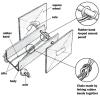
Roving on the Moon
Add to list DetailsIn this design challenge activity, learners build a rubber band-powered rover that can scramble across the room.

Statistics: Steppin' Out
Source Institutions
In this math lesson, learners construct box-and-whisker plots to analyze and compare data sets. Learners investigate whether or not long-legged people run faster than short-legged people.
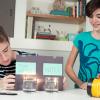
Make a UV Detector
Source Institutions
In this activity, learners use tonic water to detect ultraviolet (UV) light from the Sun and explore the concept of fluorescence.
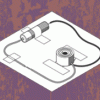
Hidden Alarm
Source Institutions
In this design challenge activity, learners invent a device that will make their friends and family ask, "What's buzzing?" Learners design an alarm with an on/off switch that is small enough to hide.
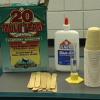
That's the Way the Ball Bounces: Level 1
Source Institutions
In this activity, learners prepare four polymer elastomers and then compare their physical properties, such as texture, color, size, and bounce height.

Pie-Pan Convection
Source Institutions
It's difficult to see convection currents in any liquid that's undergoing a temperature change, but in this Exploratorium Science Snack, you can see the currents with the help of food coloring.
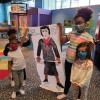
Body Biographies
Source Institutions
In this activity, learners will learn about a person they admire (famous, family or otherwise) or even themselves and create a life-sized silhouette.
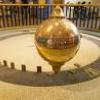
Magnetic Pendulum
Source Institutions
In this activity about magnetism (page 15 of the PDF), learners will explore how opposite and similar magnetic poles affect a swinging (pendulum) magnet.
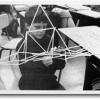
Straws and Pins
Source Institutions
In this activity, learners build bridges and cantilevers in a series of "building out" challenges with straws and pins.
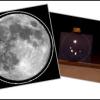
Magnification vs. Resolution: Can you see the flag on the Moon?
Source Institutions
This fun and simple hands-on astronomy activity lets learners explore the difference between telescope magnification and resolution.

Pot-in-Pot Refrigeration
Source Institutions
In this activity (on page 2 of PDF), learners create a low-tech refrigerator that requires no electricity to keep food from spoiling.

Swinging Yo-Yo
Source Institutions
Learners build a pendulum from a yo-yo, and then design their own experiment to determine what affects the pendulum's period of swing.
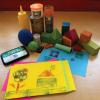
Shape Stamping
Source Institutions
In this activity, learners will explore two-dimensional shapes that are found in three-dimensional shapes. Learners will explore geometry, design, color and tool use through this activity.
